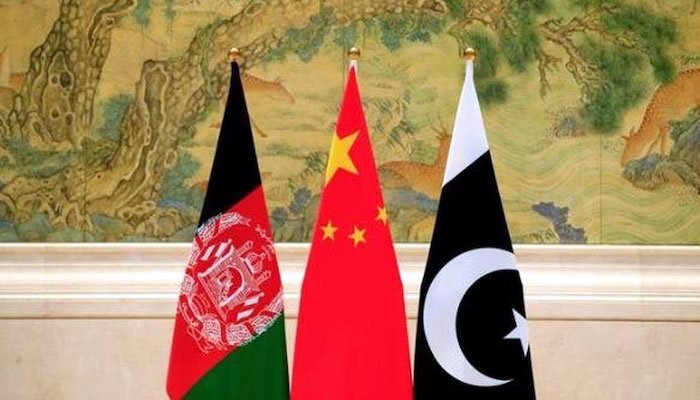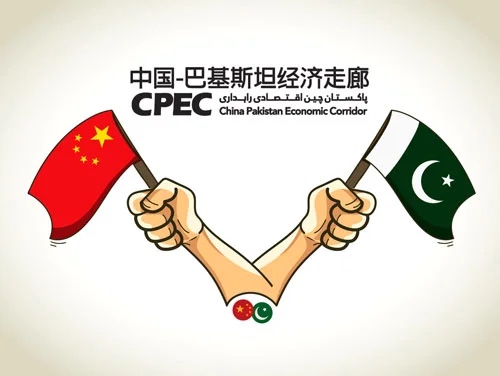“We support inclusion of the China-Pakistan Economic Corridor (CPEC) and other related projects,” said Taliban, who has emerged as a major force in Afghanistan following US withdrawal.
“We support inclusion of CPEC and other related projects. Our leadership has already conveyed the same to Pakistan and other parties [including Ashraf Ghani government in Kabul]. We believe in prosperity of Afghanistan and projects/investment and any move which may ensure economic gains for Afghanistan is welcome. In fact, we are here to provide security to such projects,” a source quoted a member of Taliban’s ‘Majlis Shura’ as saying.
“This has been conveyed to all stakeholders including Pakistan and Afghanistan government. We are happy to cooperate with the world and companies willing to initiate projects like CPEC in Afghanistan,” sources quoted the same member of ‘Majlis Shura’ of Taliban.
It is worth mentioning that Taliban has taken control of majority districts of Afghanistan including Pakistan-Afghanistan border at Chaman which serve as backbone for Afghanistan when it comes to do import and export with the world. Being a landlocked country, Afghanistan is totally dependent on Pakistan for import and export. Majority of Afghanistan’s import and export is done through Pakistan-Afghanistan International border at Chaman which came into Taliban control on Wednesday July 14, 2021.
Afghanistan has become the first among several landlocked Central Asian countries to benefit from using the Chinese-invested Gwadar Port in Pakistan in transshipment trade. In 2020, the country imported 43,000 tons of fertilizers via the port, contributing to its agricultural development.
There have also been precedent efforts in tapping for the potential of Gwadar Port as a deep-water port that may open a coveted sea trade option for landlocked Central Asian countries for exports.
On July 14, 2021, Pakistan and Uzbekistan held a meeting and agreed that trans-Afghan corridor which connects Uzbekistan and Pakistan will play an important role in enhancing bilateral trade between the two countries. Both sides agreed to expedite the implementation of the project.
In May, Uzbekistan, one of the world’s leading cotton exporters, sent a high-level delegation to the Gwadar Port to look for logistics opportunities that might help it export its cotton.
On May 24, 2021, Chinese foreign ministry’s spokesperson appreciated Prime Minister Imran Khan’s remarks on the China-Pakistan Economic Corridor (CPEC), saying Beijing is having discussions with third parties, including Afghanistan, on the extension of the flagship project.
“We have noted the relevant remarks by Prime Minister Imran Khan and we appreciate it,” Zhao Lijian said during his regular briefing while responding to a question on Premier Imran’s remarks about CPEC.
While chairing a recent high-level huddle, the prime minister had said that the CPEC will bring economic progress not only to Pakistan but to the entire region.
The spokesperson said that the Belt and Road Initiative (BRI) is an open and inclusive international economic cooperation initiative that is dedicated to improve connectivity and achieve common development.
“CPEC, as pioneering projects of BRI, has made important and major progress in infrastructure, energy, ports and industrial parks,” he added.
Experts in Kabul and Afghanistan say, Beijing has also made perfect moves to extend CPEC to Afghanistan as China looks to stabilize the country and improve its political and economic links to the country following US withdrawal from Afghanistan.
In August last year, China began pushing Pakistan to open key border crossings with Afghanistan to allow bilateral and transit trade that remain closed due to security concerns and Kabul recently signed a $2.2 billion contract to help export Afghan pine nuts to global markets.
“Taliban’s willingness to support projects like CPEC is indeed a good thing. It appears they have grown up and become wise with the passage of time,” said Abdul Sitar, Islamabad based expert on Foreign policy.
Earlier, officials in Pakistan were found bit confused about when it comes to discuss extending CPEC to Afghanistan. Major impression was that the US withdrawal from Afghanistan will increase instability in its neighborhood, and add security threats in the region while putting China’s Belt and Road projects at risk, Nikkei Asia reports.
However, Taliban’s wiliness to support CPEC’s extension to Afghanistan has sent pleasant waves across Islamabad and Beijing, experts say.
Sohail Bhati, Islamabad based expert on Foreign policy said Connectivity embodied by BRI will facilitate the flow of goods and people and via CPEC’s key transportation routes, and it is not hard to see that Afghanistan’s post-war reconstruction.
“BRI will facilitate the flow of goods and people and via CPEC’s key transportation routes. It may serve as the backbone of Afghanistan’s post-war reconstruction, industrial and digital buildup and economic growth .” Sohail Bhatti said.

















